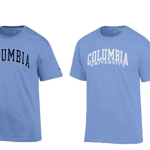Accell Group N.V. eked out 3 percent organic sales growth in 2012 even as recession-weary and rain-soaked Europeans downshifted their spending on new bikes. Acquisitions, meanwhile, transformed Europes largest bike maker into a much more significant player in the United States, where it is ramping up marketing for its newly acquired Raleigh and Diamondback brands.
The Netherlands-based company reported sales increased 23 percent to €772.5 million ($993 mm) in 2012, from 2011, due primarily to €123 million ($158 mm) in revenues from newly acquired Raleigh Cycle Ltd. of the United Kingdom, Currie Technologies (IZip e-bikes) of California and Van Nicholas Bicycles (titanium frame bikes) of The Netherlands. The balance of the growth came from rising sales of e-bikes and parts and accessories. In organic terms, sales grew 3 percent for the year and 5 percent in the second half.
Net profit, however, fell 42.2 percent to €23.3 million as Accell incurred acquisition and restructuring charges and paid a multi-million euro fine to settle an anti-trust case with Dutch regulators. Excluding those non-recurring charges, net operating results for the full year reached €26.3 million ($34 mm), which represented a decline of 17 percent from 2011, but was still in line with guidance.
Bicycle sales grew 19 percent to reach €553 million ($711 mm) and were up 2 percent in organic terms. Sales of bicycle parts and accessories (BP&A) grew 40 percent (8 percent organic), as recession weary Europeans put off new bike purchases and invested in maintaining existing bikes. The acquisitions of Raleigh, Currie and Van Nicholas accounted for the balance of the growth.
Acquisitions raised the number of bicycles sold by 500,000 to 1.6 million, but lowered the average price per bicycle to €345 ($444), from €417 in 2011. In relative terms, Raleigh sells more mountain bikes and racing bikes in the mid segment of the market. In organic terms, the average price per bike increased as e-bike sales rose 23 percent to reach 32 percent of bike sales. Sales of sports bikes were up 21 percent and sales of traditional bikes were up 14 percent.
Nevertheless, BP&A operating results dropped 8.2 percent in currency-neutral terms to €48.8 million ($63 mm) from €52.8 million in 2011 as recession-weary Europeans turned to less expensive conventional bikes or fixing up existing bikes.
In the United States, sales increased approximately 6 percent thanks primarily to the addition of Raleigh and its Diamondback brand, which is best known for its BMX and mountain bikes, which are distributed by several big box sporting goods chains. Diamondback recently hired a U.S. P.R. firm to help roll out its new road bike collection and build credibility with IBDs. Accell has begun integrating Raleighs P&A business with Seattle Bike Supply, a distributor it acquired in 2006. Accell continues to phase out production at Raleighs factory in Canada.
In Europe, Accell was able to grow organic sales by 5 percent in the back half of the year by increasing prices and reducing discounts following an unusually rainy spring. In its home market of The Netherlands, bicycle sales fell 7 percent in 2012, compared with a market drop of 13 percent. BP&A sales were up 3 percent. Bike sales increased 8 percent in Germany thanks to brisk e-bike sales. Bike sales declined 7 percent in France, where e-bikes are less popular.
In many countries, growth remains under pressure from the persistent reluctance among retailers to hold stock in their stores, partly due to their limited financing options, said Accell Groups CEO, René Takens.















